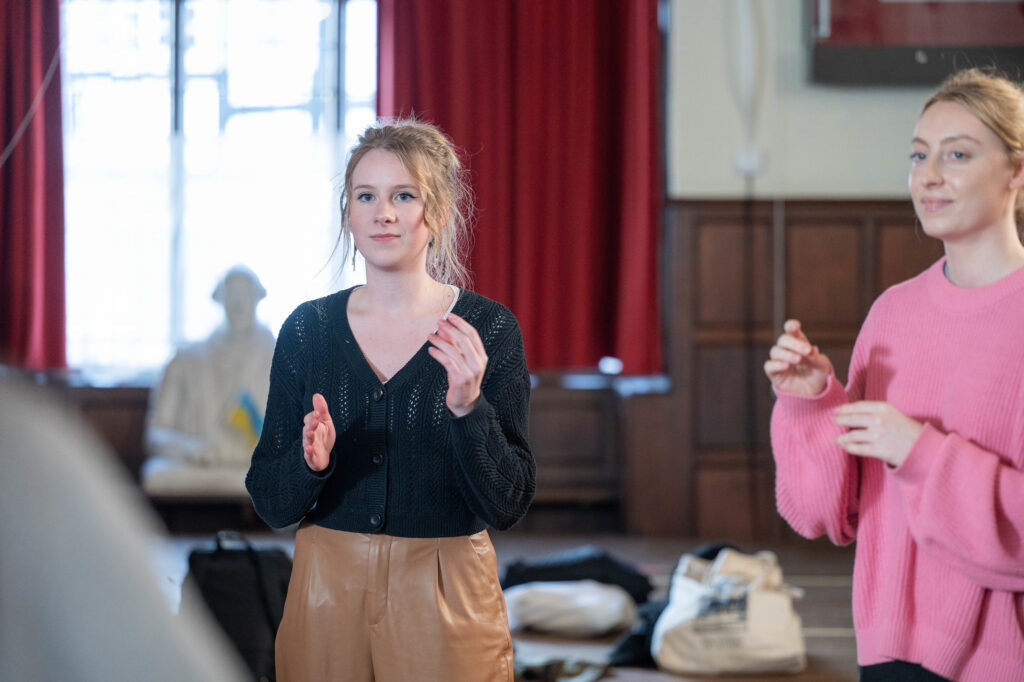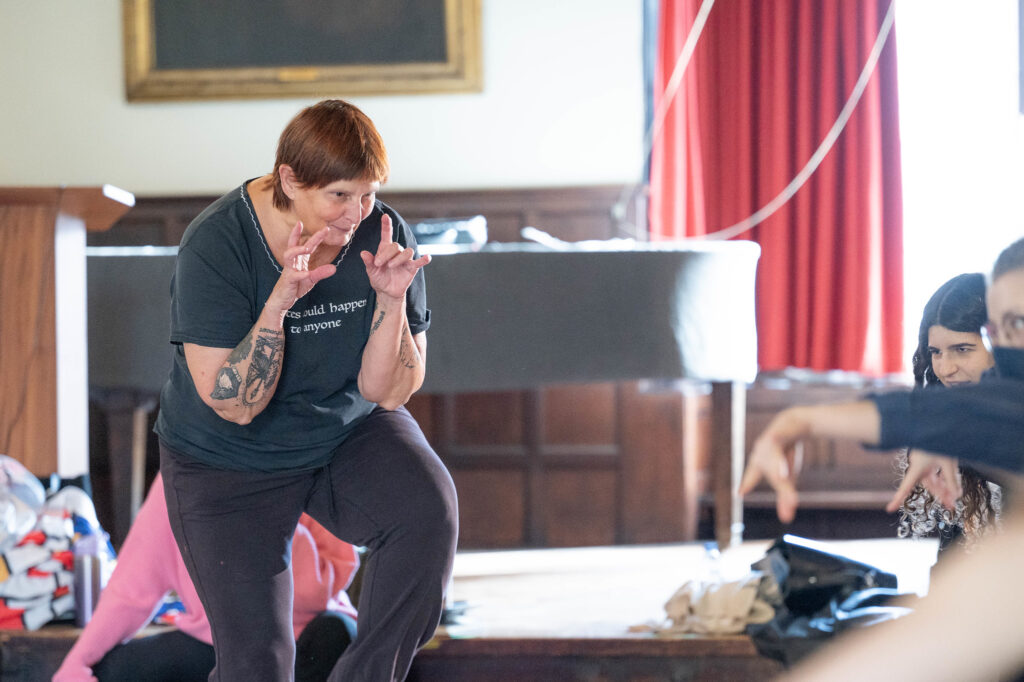As part of the MA Shakespeare and Creativity course, students had the opportunity to take part in a Royal Shakespeare Company ensemble-building workshop led by actor and practitioner Yasmin Taheri. Rachel Stevenson writes about her experience at the workshop.
The day was packed with activities, energy, fun and revelations. Here are the most important lessons I learned and will use for future group projects both in, and beyond, my MA.

When to step back
After warming up and setting some ground rules, Yasmin introduced us to our first exercise. We analysed the prologue of Romeo and Juliet in small groups, then combed our ideas to stage it as a class.
As a set of ambitious directors, actors and academics we were overflowing with suggestions. However, this enthusiasm soon became detrimental as we struggled to get the scene on its feet. We were bogged down with ideas and lacked an objective perspective or ‘outside eye’ to point us in the right direction. When it was time to break for lunch, we felt frustrated, under-rehearsed and discontent with our performance.
However, when we returned the energy in the room switched. The space of the break allowed us to reflect on what needed to change in our approach. We ‘tapped-in’ (a short breathing exercise we do at the start of project meetings to ground us as an ensemble) and put aside our individual visions to make some quick-fire decisions. With this new focus, we progressed more in the final five minutes than we had in the previous thirty.
When to make noise
The next exercise involved each of us making simple, repeatable sounds which was then conducted by a member of the class. After establishing the basics, we split into smaller groups and took turns being the conductor of a soundscape to Caliban’s ‘Be Not Afeared’ speech from The Tempest.
This allowed us each to practice being the ‘objective eye’. Allocating a conductor did not inhibit our imagination but allowed it to flourish productively. We shared noises we could already make – including an uncanny monkey shrike from one classmate – and explored the space for new sounds, such as running a ringed hand against a stack of chairs to imitate a windchime. Each conductor encouraged creativity while transforming the confused mass of sounds into a performable piece.

How to work as one
Yasmin tested our new ensemble skills with the final activity: staging the entire plot of Macbeth.
After struggling to stage 14 lines of Romeo and Juliet, blocking a whole play in 45 minutes first seemed impossible. But, energized by the noise-making exercise and recalling our past mistakes, we threw ourselves into the challenge. We allocated a time manager, came up with an intention behind the performance and divided up the ‘outside eye’ role by randomly selecting two scenes each. Within 5 minutes we were on our feet!
With a strict time limit of one minute of planning per scene; we delivered a chaotic, but cohesive, micro-Macbeth. It may not be appearing on the RSC stage anytime soon, but nevertheless, it left our audience laughing along with us.
How to play
As we gathered for our final reflection, I was struck by the trust and joy radiating throughout the room. I couldn’t remember the last time I had felt secure enough to let go, dance around like a witch or whistle like the wind. After learning only in libraries and lecture halls as an Undergraduate, this workshop taught me the creative value of play and helped our ensemble to become a space where we can do so constructively and unapologetically.
